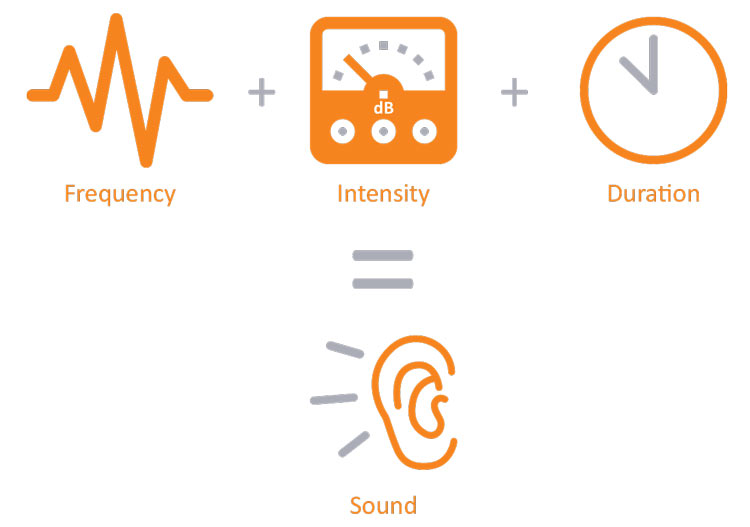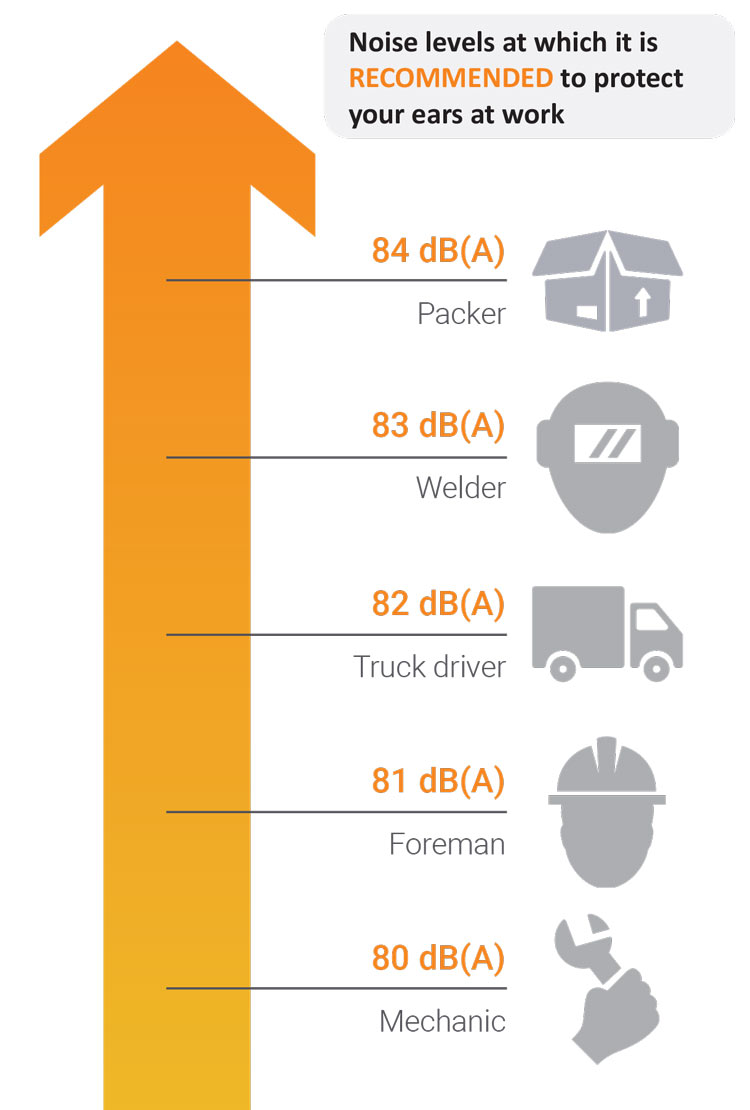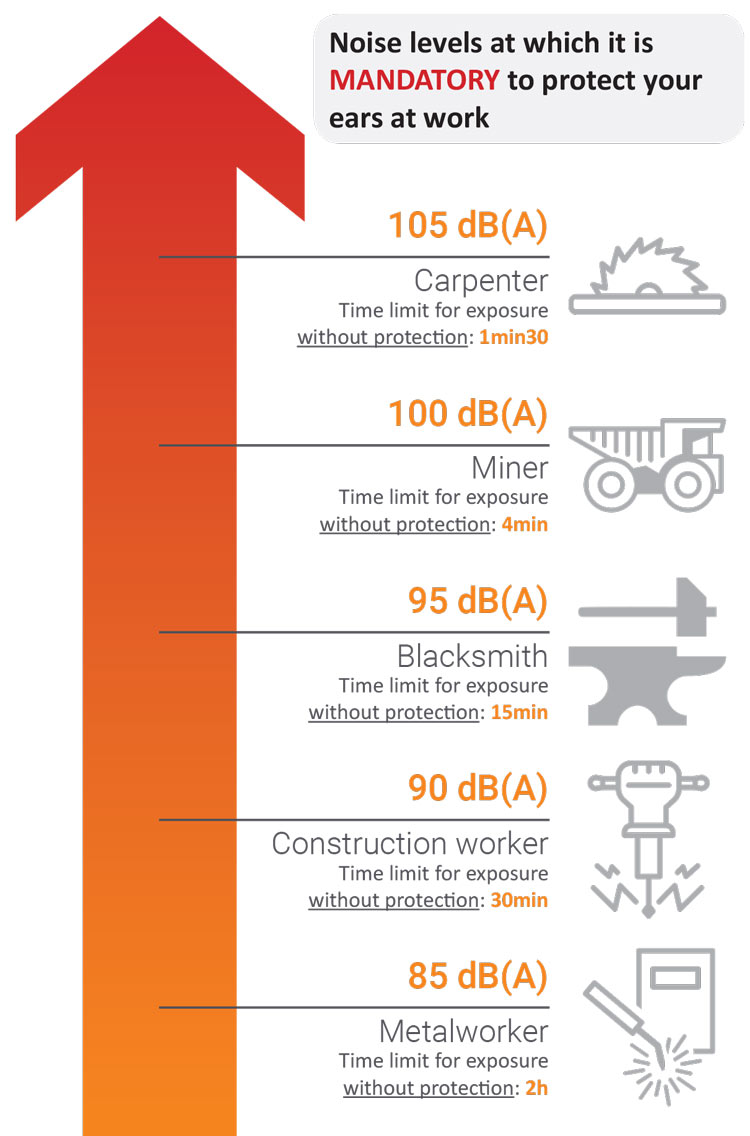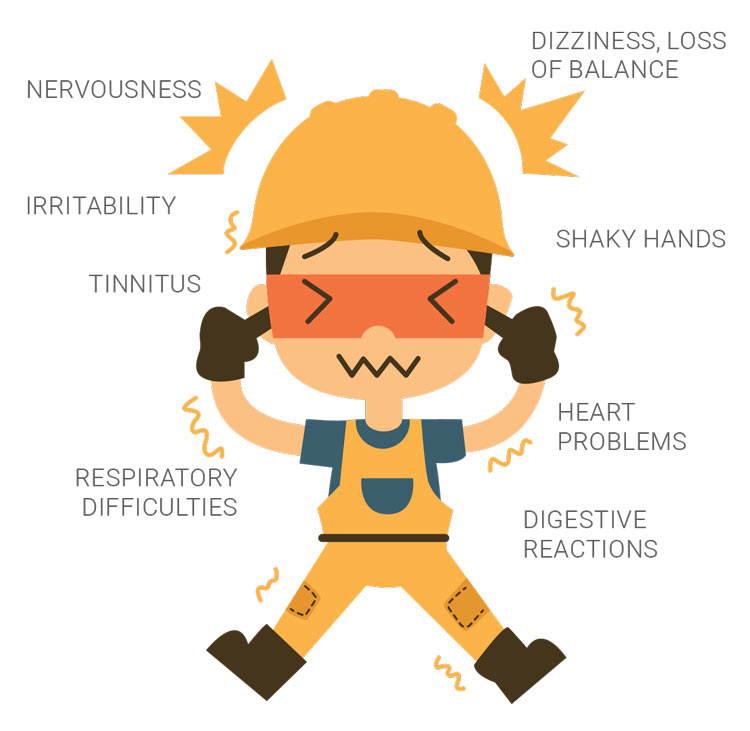Often a nuisance of our modern world, noise is everywhere. Even if it's generally considered as just a bit of a nuisance, it can still cause irreversible damage to our hearing. The National Hearing Day is the ideal opportunity to understand this danger in order to better prevent it. So what exactly is dangerous about noise?
Definition and legal status
Sound and noise are two precious components of everyday life that allow us to interact with the world around us. However, prolonged exposure to loud noise, both in the workplace and in everyday life, can become a danger and cause irreversible damage to long-term hearing.
Sound
A sound is defined by vibrations of air reaching the hearing medium. It consists of three inseparable elements:
- Frequency: expressed in hertz (Hz) and indicating the number of vibrations during one second (100 Hz = 100 vibrations per second). The higher the frequency, the higher the sound.
- Intensity: expressed in decibels (dB) and indicating the sound level. The higher the decibels, the louder the sound.
- Duration: a sound can be emitted over a short period of time (explosion, jet aircraft) or over a longer period of time (machine in a workshop, pneumatic drill on a building site).

Noise
Unlike a sound that has an objective definition, noise is subjective and corresponds to sounds that are perceived as unpleasant and annoying. Each individual develops their own sensitivity to noise based on their culture, experience and exposure.
What does the law say?
On a European level, noise has been recognised as a cause of occupational disease since 2003.
Directive 2003/10/EC sets out a common policy to combat workplace noise, the most frequently reported European disease in the European Union.
Since 2006, this Directive has been transposed into national law in all Member States and sets minimum requirements for the protection of workers from the risks associated with exposure to noise:
Above 80 dB(A)
- Provision of custom hearing protection
- Noise risk training
- Audiometric testing
Above 85 dB(A)
- Implementation of a noise exposure reduction programm
- Mandatory wearing of custom hearing protection
- Enhanced audiometric testing
Above 87 dB(A)
- Threshold must not be exceeded (custom hearing protection worn)
- Implementation of immediate exposure reduction measures
- Limited duration of employee exposure
Noise levels
Over the past 15 years, the proportion of employees exposed to dangerous noises has increased significantly across Europe and throughout the world.
More and more sectors are affected, such as the tertiary sector, even though construction and industry are still the most heavily impacted.
The noise levels at which protection is recommended
Under the European Directive, an employer is obliged to provide employees with individual protectors for noise intensities between 80 and 85 dB(A). Here are some examples of jobs where hearing protection is recommended:

Remember that these are averages and that sound intensities may vary from one job to another.
The noise levels at which protection is essential
Upward of 85 dB(A), the provision of custom hearing protection becomes mandatory for employees. Indeed, the higher the sound intensity, the greater the need to reduce the time spent without protection so as not to damage hearing. Above 90 dB(A) of exposure, a few minutes are enough:

Quick tip: recognising if sound is too loud
If you have to shout to be heard by someone 1 meter away from you, it means that the sound level is too high. It is dangerous for your hearing to remain in these conditions.
The effects of noise
Except in cases of exposure to extreme intensities, the effects of noise on hearing occur gradually. However, the consequences of noise aren't limited to hearing. They also impact the body and daily life, both directly and indirectly.
Direct effects
The most radical direct consequence of exposure to noise is total loss of hearing after a number of years spent in noisy environments. But before getting to this extreme stage, prolonged exposure to loud noise can have other direct consequences on hearing.
Auditory fatigue
Auditory fatigue is a temporary partial loss of hearing during which the ear loses some of its sensitivity. Hearing is less good for several hours or several days.
Tinnitus
Tinnitus is a whooshing sound that is heard when there is no noise in the vicinity. Tinnitus can be transient or chronic and can affect one or both ears.
Hyperacusis
Hyperacusis is a hearing disorder in which the affected ear becomes hypersensitive to certain sound frequencies. In this specific case, it is said that a person hears "too well".
Acute acoustic trauma
Acute acoustic trauma is a hearing impairment related to an intense sound shock. It can manifest itself in all the effects described above. Service personnel, police and musicians are often affected by acute acoustic trauma.
Quick tip: How do I know if I have hearing problems?
If you are regularly faced with the following situations in your environment:
- You feel that people aren't speaking clearly enough when they talk to you in a meeting.
- You have difficulty following a conversation in a noisy environment, such as a family meal.
- People keep saying that the TV or radio is too loud.
You probably have hearing problems. You should see a doctor or an ENT specialist for a hearing test.
Indirect effects
Although the ear is the first organ to be affected, noise can also have repercussions on the whole body. A special awareness poster is freely available. Click the image above to access it.

